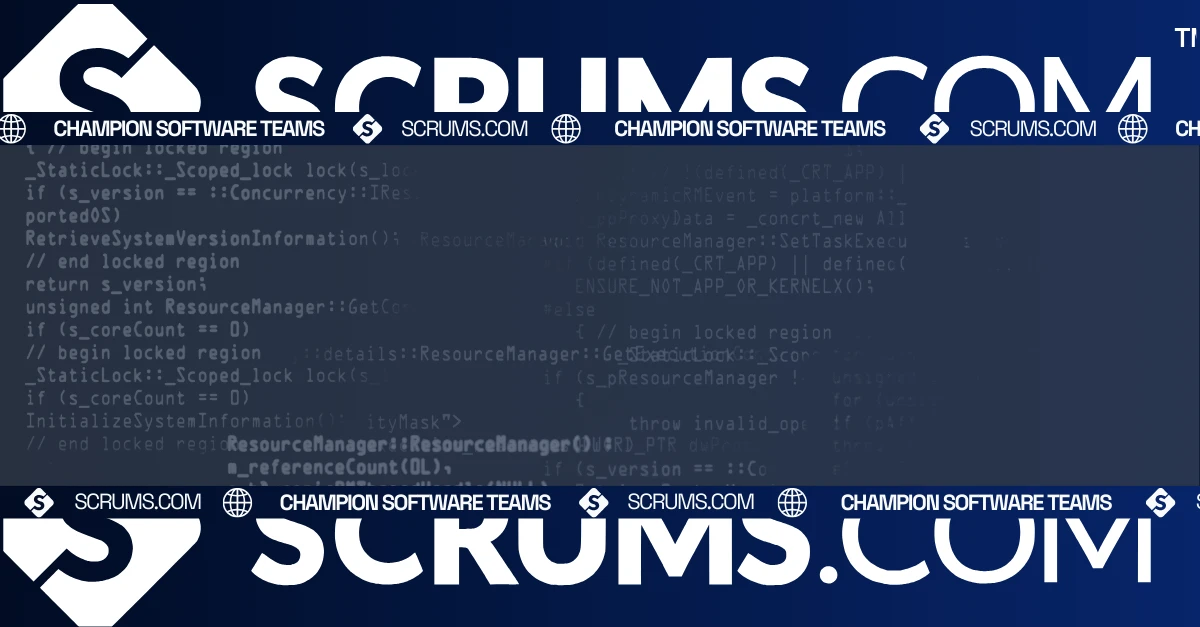Accelerate Software Development with PyCharm IDE
Introduction to PyCharm
PyCharm is an advanced Integrated Development Environment (IDE) designed specifically for Python development. Developed by JetBrains, PyCharm is trusted by both individual developers and software development companies for its powerful features that streamline code management, testing, and deployment. Its cutting-edge tools, intuitive interface, and unmatched Python support make it one of the most popular IDEs in the market today.
For business owners and CTOs, PyCharm accelerates project completion times, making it a valuable asset for teams working on complex Python-based applications. With productivity-enhancing features like code refactoring, debugging, and intelligent code assistance, PyCharm supports strategic development at scale, making it ideal for businesses in fast-paced industries such as fintech, healthcare, and e-commerce that depend on Python for mission-critical software.
What is PyCharm?
PyCharm is a feature-rich Python Integrated Development Environment (IDE) designed by JetBrains and released in 2010. Providing native support for Python, PyCharm extends its functionality with a suite of tools such as code analysis, error-checking, debugging, and unit testing, offering developers an all-in-one workspace for Python development.
PyCharm is available in two versions—PyCharm Community, which is free and open-source, and PyCharm Professional, a paid version that provides additional features for web development and enterprise-level integration. Regardless of the version, PyCharm is most effective in environments requiring efficient code performance, live debugging, and framework support for Django, Flask, and other Python-based development approaches.
PyCharm's simple yet powerful interface has made it popular among beginner developers, while its advanced features cater to expert users building data science, artificial intelligence, or web applications.
Core Features and Functionalities
1. Integrated Development Toolkit
PyCharm offers an all-in-one toolkit that includes everything from code analysis, smart autocompletion, code navigation, and real-time error detection to version control integrations. It also supports JUnit and pytest for testing, significantly reducing the need for external tools.
Business Value: By providing a full-featured environment, PyCharm eliminates tool fragmentation, enabling faster and smoother development workflows.
2. Intelligent Code Assistance
PyCharm’s unique ability to provide context-aware suggestions, refactoring tools, and error detection allows developers to write code faster while reducing errors. Its editor understands more than just Python—it supports HTML, JavaScript, and SQL used in Python projects, helping particularly with full-stack Python development.
Business Value: Robust code assistance reduces deployment time, minimizes coding errors, and frees up developers to focus more on logic and functionality rather than syntax problems.
3. Debugging and Testing Tools
PyCharm includes a sophisticated debugger with a visual GUI debugger, breakpoints, and step-by-step execution options. PyCharm also integrates unit testing frameworks like pytest, unittest, and doctest, allowing developers to test their applications inside the same environment seamlessly.
Business Value: Faster debugging and testing enhance the overall efficiency of the development team, reducing bottlenecks and allowing for quicker releases.
4. Support for Web Development Frameworks
In its Professional Edition, PyCharm natively supports Django, Flask, and other Python web frameworks, making it easy to build entire web applications directly within the IDE. Additionally, PyCharm supports front-end languages like JavaScript, HTML, and CSS, allowing for seamless integration between the back-end and front-end development work.
Business Value: This end-to-end support from back-end to front-end minimizes the need for multiple tools, cutting costs and simplifying the development lifecycle.
5. Git, GitHub, and Version Control Integration
PyCharm integrates with version control systems like Git, GitHub, and Mercurial, offering users built-in Git workflows. Developers can commit, push, pull, resolve merge conflicts, and create branches directly from the IDE.
Business Value: Integrated version control ensures better collaboration and project cohesion, leading to a faster code versioning process with fewer errors.
6. Remote Development Capabilities
PyCharm allows remote development via SSH and Docker containers, making it easy for teams to collaborate and manage projects in decentralized environments. This enables coding anywhere, whether it's on personal machines, cloud servers, or enterprise networks.
Business Value: Remote development gives teams flexibility and scalability, reducing infrastructure setup costs and supporting global collaboration effortlessly.
Benefits for Businesses and Development Teams
For Businesses:
- Increased ROI: With fewer errors and faster coding capabilities, PyCharm improves the speed of development while reducing project delays, leading to faster market releases and higher ROI.
- Lower IT Costs: By offering an all-in-one solution for Python development, PyCharm reduces the need for extra software licensing, hardware maintenance, and training, helping businesses save on operational costs.
- Streamlined Cloud and Web Development: Businesses can leverage PyCharm's remote development framework and AWS, Google, and Heroku integrations for cloud-native Python applications, making deployment and scaling easier.
- Faster Time-to-Market: Teams running on PyCharm reduce development cycles through quick troubleshooting, automatic error checks, and integrated testing, which amplify speed without sacrificing quality.
For Developers:
- Enhanced Productivity: PyCharm’s smart code assistance, refactoring, and extensive framework support allow developers to boost productivity, focus on critical tasks, and reduce time spent on debugging.
- Agile and Flexible Workflows: PyCharm integrates smoothly with Git, CI/CD (e.g., Jenkins, GitLab ), and cloud containers, creating continuous feedback loops that support Agile methodologies and enable developers in fast-paced environments.
- Cross-Platform Development: PyCharm is available on Windows, Linux, and macOS, ensuring developers have platform flexibility and allowing them to code from the OS they are most familiar and productive with.
Use Cases and Applications
1. Web Application Development
PyCharm’s built-in support for popular web development frameworks like Django and Flask enables developers to build robust web applications. The IDE also supports HTML, CSS, and JavaScript and integrates well with modern front-end technologies.
2. Data Science and Machine Learning
For developers working on data science projects, PyCharm offers extensive support for libraries like NumPy, Matplotlib, and Pandas, making it highly effective for data analysis, machine learning, and scientific computing workloads.
3. DevOps and CI/CD Pipelines
With its tight integration with Docker and flexible remote development capabilities, PyCharm is the ideal IDE for developers working within a DevOps pipeline, allowing for streamlined code production, testing, and deployment.
Industry Examples:
- Fintech: In fintech, PyCharm’s powerful debugging and testing capabilities allow developers to build secure financial services, ensuring compliance with industry regulations.
- Healthcare: PyCharm’s support for machine learning libraries empowers healthcare developers to create neural networks for patient data analysis or predictive analytics.
- E-commerce: E-commerce companies leverage PyCharm to create scalable, reliable back-end systems (e.g., APIs, user transactions) built on frameworks like Django.
Integration Capabilities and Ecosystem
Compatible with Popular Platforms
- Cloud Services: PyCharm integrates with popular cloud services including AWS, DigitalOcean, and Heroku, enabling developers to deploy applications at scale.
- Docker: PyCharm has robust Docker support for building, shipping, and running applications in containers, making it ideal for microservice-based architectures and cloud-native applications.
Plugin Ecosystem
- Rich Plugin Library: PyCharm's Plugin Marketplace includes hundreds of plugins that add support for various frameworks, languages, themes, and tools, helping developers customize their workspace based on project needs.
API Support
- API Integration: PyCharm allows easy integration with RESTful APIs, making it perfect for applications that rely on external data sources, third-party services, or microservices.
Comparison with Alternatives
PyCharm vs VSCode: While Visual Studio Code supports Python development through extensions, PyCharm offers a more robust, out-of-the-box Python experience. PyCharm’s integrated features, like refactoring, code analysis, and debugging, are deeply rooted in Python programming, making it more specialized for Python-specific use cases.
PyCharm vs JupyterLab: JupyterLab is ideal for quick data science experiments and documentation; however, PyCharm offers a full IDE feature set, including advanced debugging, testing support, and more robust version control, hence it's better suited for building production-level Python applications.
When to choose PyCharm: If your team is working within the Python ecosystem—especially building complex web apps, doing machine learning, or requiring detailed error tracking and debugging—PyCharm provides the most comprehensive Python IDE available.
Getting Started with PyCharm
Getting started with PyCharm is easy. Follow these steps:
- Download PyCharm: Visit the official PyCharm website to download the Community Edition (free) or Professional Edition for more features.
- Install Required Plugins: Open the plugin manager and explore plugins relevant to your project—whether it’s integration with Git, Docker, or specific frameworks.
- Set Up Version Control: Integrate Git, GitHub, or Bitbucket to enable project version tracking and collaboration.
- Configure your Development Environment: Customize your workspace with Python interpreters, remote Docker environments, or virtual machines based on the needs of your project.
- Start a New Project: Use PyCharm’s project templates for Flask, Django, or Pyramid to kickstart your web application's development.
For an in-depth introduction, check out official tutorials or upcoming webinars.
Related Tools and Resources
- Getting Started with Docker in PyCharm
- Top Plugins to Maximize Productivity in PyCharm
- How PyCharm Enhances Data Science Workflows
Explore Related Software Development Tools
FAQs
We've got you covered, these are some common questions we receive. Not seeing the answer to something?...
The Community Edition is free and offers basic Python support. The Professional Edition offers advanced web frameworks, databases, and other features ideal for enterprise development.
Yes, PyCharm serves both entry-level developers with its easy-to-use interface and advanced users needing in-depth debugging, testing, and automation.
Yes, PyCharm supports web frameworks like Django, Flask, and Pyramid, with additional features in the Professional Edition.
Yes, PyCharm has integrated support for Git and GitHub, allowing developers to manage code repositories directly from within the IDE.
Yes, PyCharm has excellent support for Docker and can deploy microservices on Kubernetes clusters.
PyCharm is cross-platform and runs on macOS, Linux, and Windows.
Explore Software Development Blogs
The most recent trends and insights to expand your software development knowledge.






